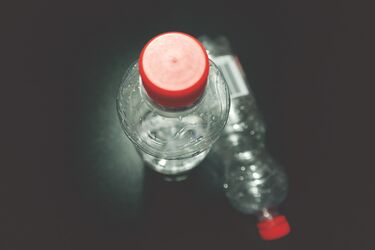Contain hundreds of thousands of plastic microparticles: scientists warn of the dangers of bottled water

A study has found that a typical one-liter bottle of water contains an average of about 240,000 plastic fragments, 90% of which are small enough to enter the human bloodstream.
According to a new study published in the journal Proceedings of the National Academy of Sciences, bottled water may contain up to 100 times more plastic particles than previously thought, Bloomberg reports.
Read also: How to check the quality of tap water yourself: simple tips
The researchers used a new microscopy technique to detect tiny plastic in 25 liters of bottled water purchased from three popular brands in the United States. They found between 110,000 and 370,000 plastic fragments in each liter, 90% of which were nanoplastics, which are plastic particles less than 1 micrometer in length.
Nanoplastics pose a greater threat to human health than microplastics because they are small enough to penetrate human cells, enter the bloodstream, and affect organs. Nanoplastics can also pass through the placenta into the bodies of unborn children.
The researchers say their findings suggest that the health problems associated with plastic pollution may be grossly underestimated.
The International Bottled Water Association said the study's methodology "needs to be fully reviewed by the scientific community" and that "there is no scientific consensus on the potential health effects of nano- and microplastic particles."
Every year, more than 450 million tons of plastic are produced worldwide, much of which ends up in landfills. The vast majority of plastic does not biodegrade naturally but breaks down into smaller pieces over time, the publication writes.
Tiny pieces of plastic are also regularly discarded from products containing plastic during their use, including many synthetic fabrics.
As a reminder, we have already written what products should not be added to coffee.
If you want to get the latest news about the war and events in Ukraine, subscribe to our Telegram channel!
